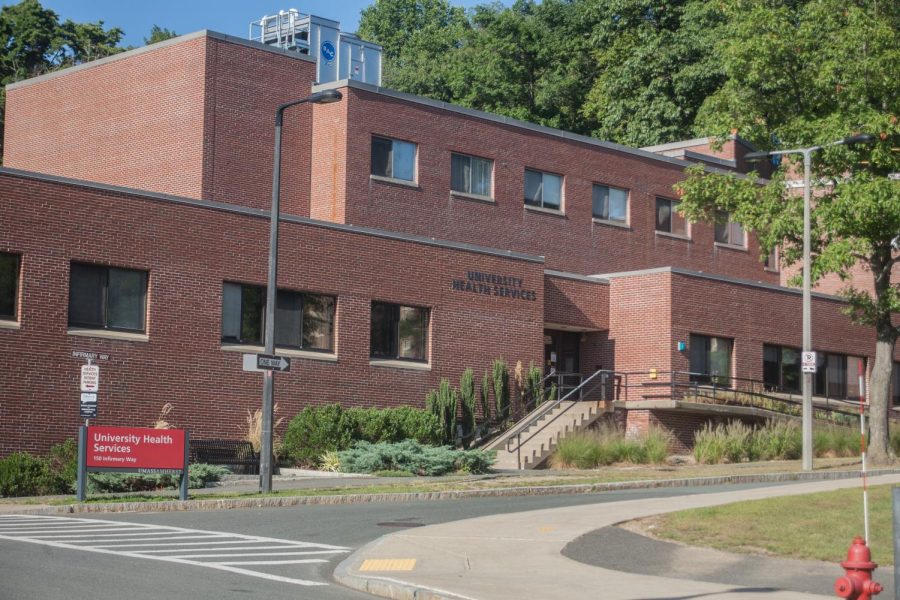University Health Services at the University of Massachusetts added medical abortion pills to its list of services. Effective July 29, 2022, a law sponsored by state Rep. Lindsay Sabadosa of Northampton requires state university health services to begin administering medical abortion pills with state-funded assistance.
At UMass, UHS plans to safely dispense the medical abortion pills to students through a physician who will, “see the patient and prescribe the medication” and “provide associated counseling and follow up,” according to Medical Director George A. Corey. He also confirmed that, “UHS does have a readiness plan, and is already operating in full compliance,” following the bill’s specification that schools offer medicated abortion pill services by November 2023.
Medication abortion is a form of abortion, administered in two dosages with the best results within the first 11 weeks of pregnancy. Planned Parenthood League of Massachusetts Communications Manager Rezwana Huq noted, “Medication abortion is safe and effective, both in a clinic setting and at home.”
The pain from the pill differs for everyone, however, UHS offers over-the-counter and prescription pain medication if deemed necessary. In addition, it also offers confidential methods of payment for the pill for students who wish to be discrete in their care treatments. More information can be found on UHS’s website, under Women’s Health.
Although UHS now offers abortion services, campus health services do not anticipate the need for a buffer zone, a space designated for patients to enter and exit abortion clinics without being disturbed by abortion-related politics. However, in the case of negative crowd reactions, Corey said, “UMPD would be involved and all actions would be taken to assure the safety of all UHS patients.”
Bill H.5090 is a protective reproductive health bill that is responsible for the expansion of comprehensive healthcare. With its counterpart, Bill H.3841, abortion pills are now accessible from state university health services.
Achsah Dorsey, assistant anthropology professor, is teaching a course about women’s health and life at UMass. “Having access to medication abortion at UHS will certainly decrease the anxiety and stress that comes with identifying an abortion provider, organizing travel to and from, and knowing where they can go with questions or to receive additional help,” said Dorsey.
With 19 states in America banning abortions in some way, Massachusetts joins the growing list of states with protective reproductive health laws, including California and New York. UC and CSU schools and Barnard College either now or plan to offer the abortion pill in their school’s health services.
Many students interviewed on campus were not aware of the change made by UHS. “I think it’s wonderful it’s being offered on campus,” said Elijah Ramos, junior BDIC major. Ramos added that he appreciates the easier access for safe abortions.
Other students also praised the decision. “Having the pill accessible in the community removes the stigma of abortion and normalizes it,” said Grazielly De Oliveria Guerra, public health major. “I don’t know why we didn’t offer it sooner.”
Chemistry major Isa Nicastro said, “Honestly, this was the perfect time. It feels like the country’s regressing, but I’m really grateful for myself and for other people on campus to have this resource available for the time being.”
Some members of the campus community have concerns about the bill. Kate Scott, president of UMass Students for Life, expressed concern for students taking the abortion pill. “Chemical abortions end the life of a preborn child and severely harm the physical and mental wellbeing of the mother.” According to the American Psychological Association, there is no scientific evidence that abortion causes mental health issues. The American College of Obstetrician and Gynecologists states that medical complications during abortions are rare.
Some have raised concerns that students who live in states where abortion is criminalized may face legal repercussions. Dorsey advised that UHS and UMass administration should create special plans of action, in order, “to protect students whose residential status is located in areas of the United States where abortion has been or is in the process of being criminalized.”
Massachusetts abortion providers can be found here. For support and resources throughout pregnancy, local assistance can be found here. Located throughout Western Massachusetts, Tapestry Health can be contacted for sexual and gender-reaffirming healthcare.
Victoria Wan can be reached at [email protected].


















